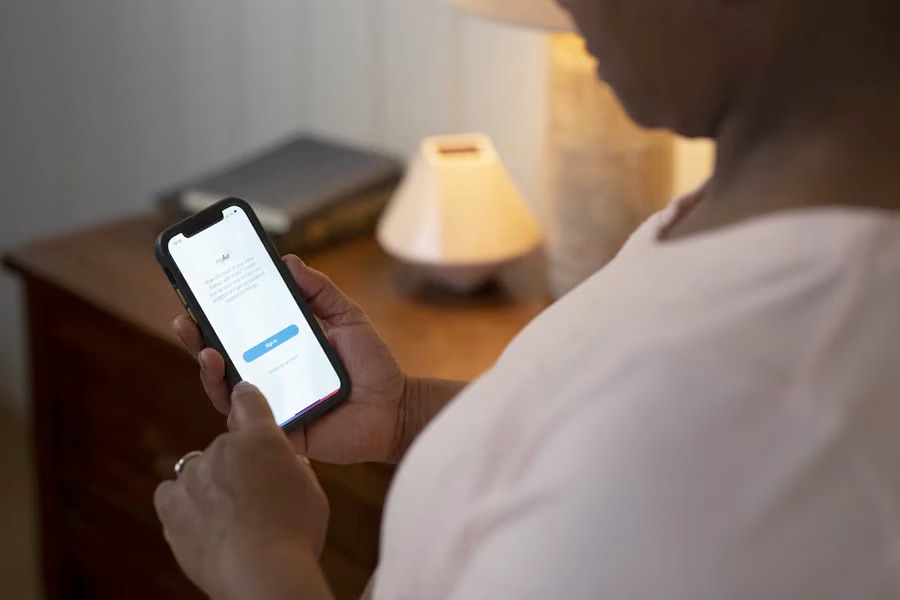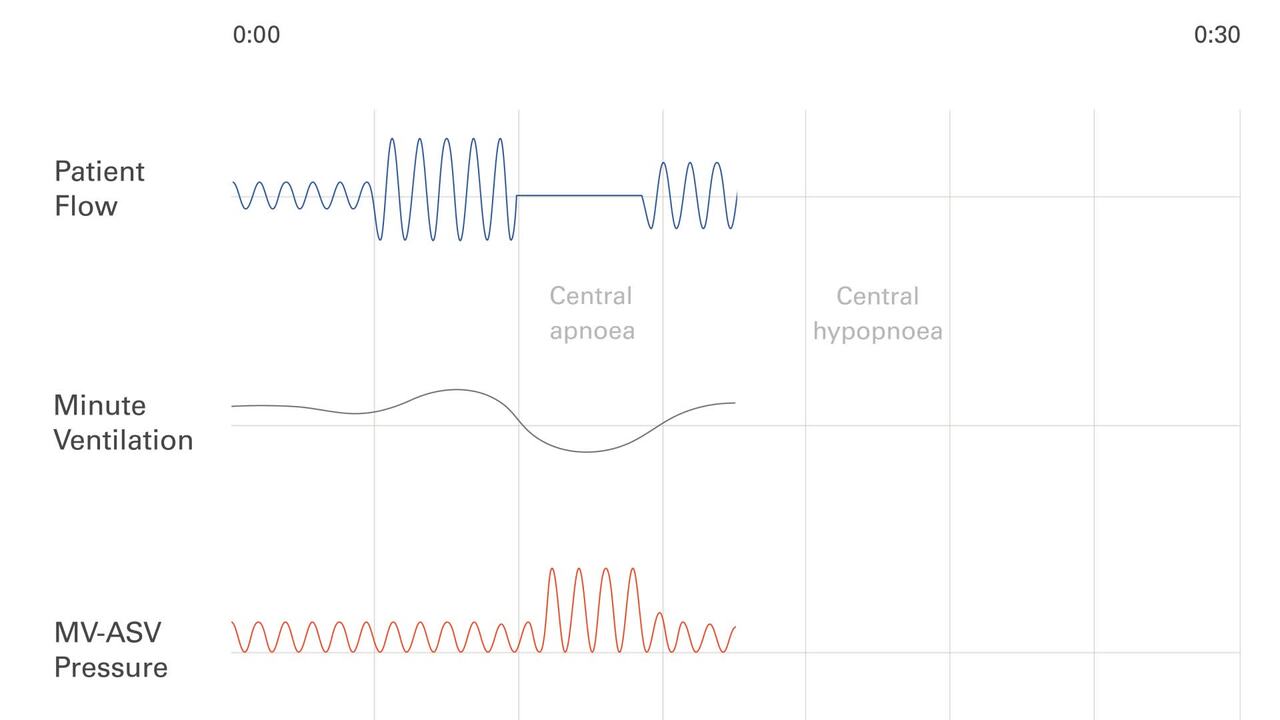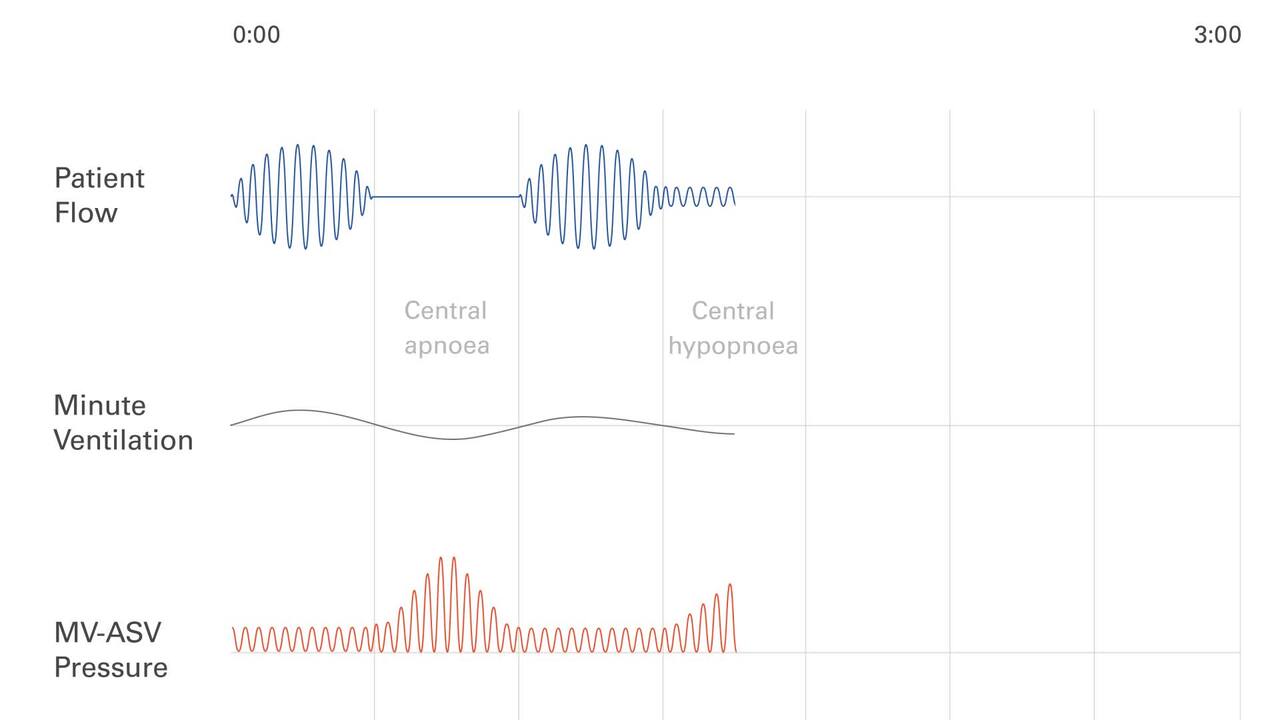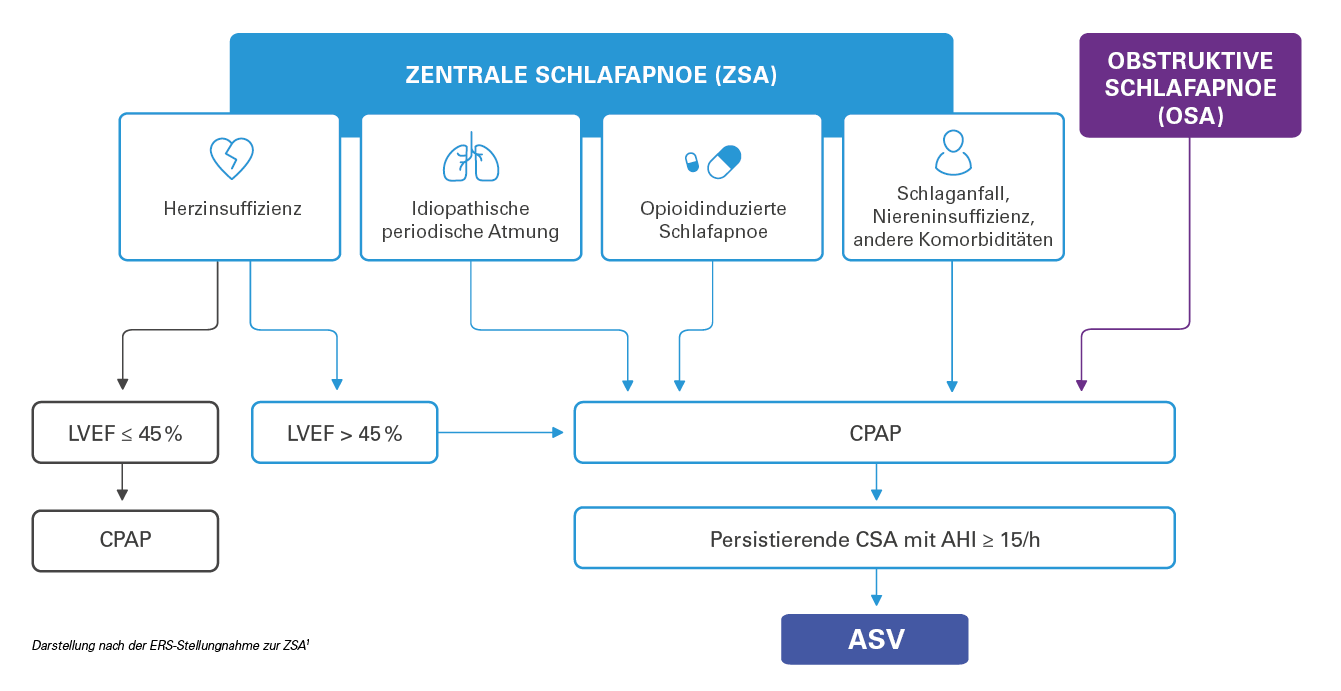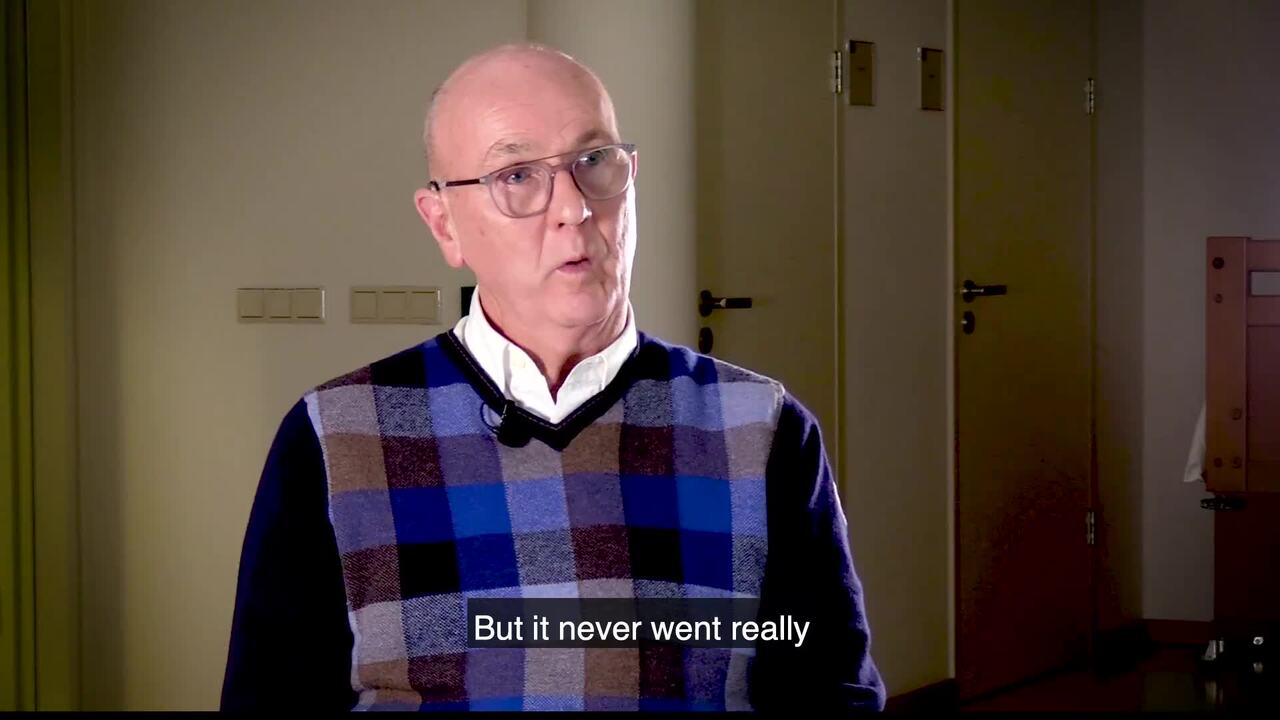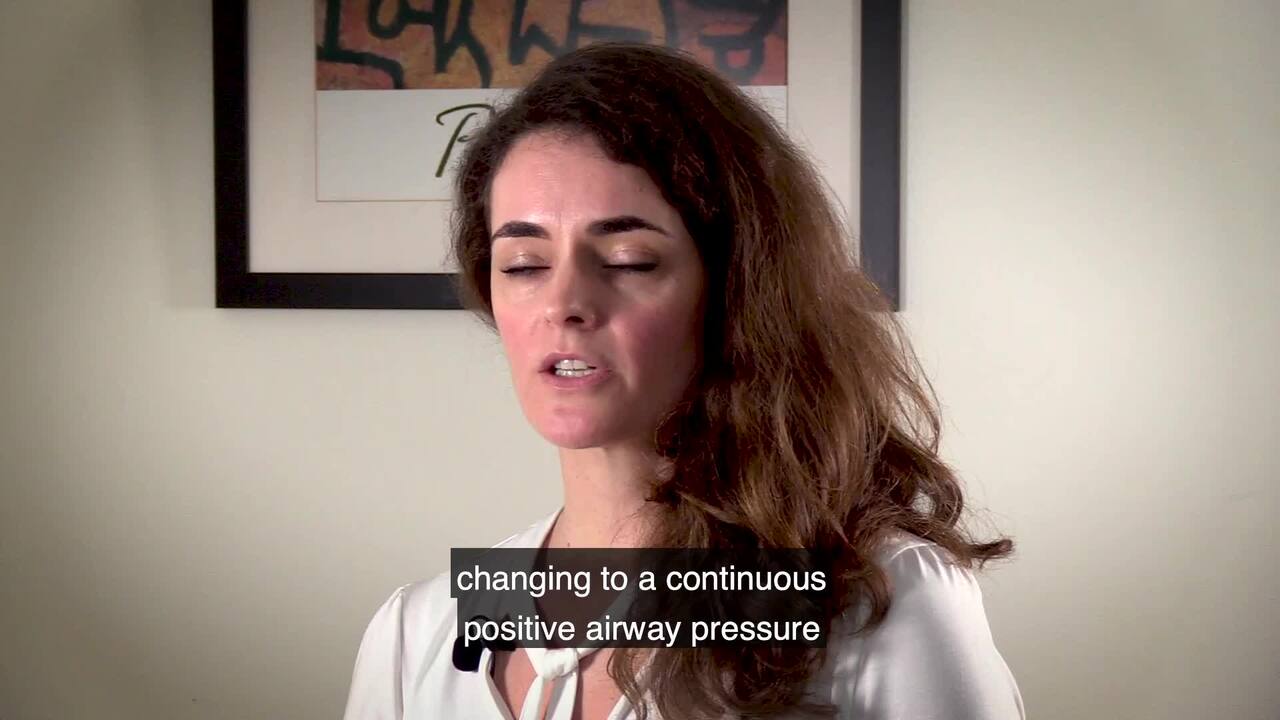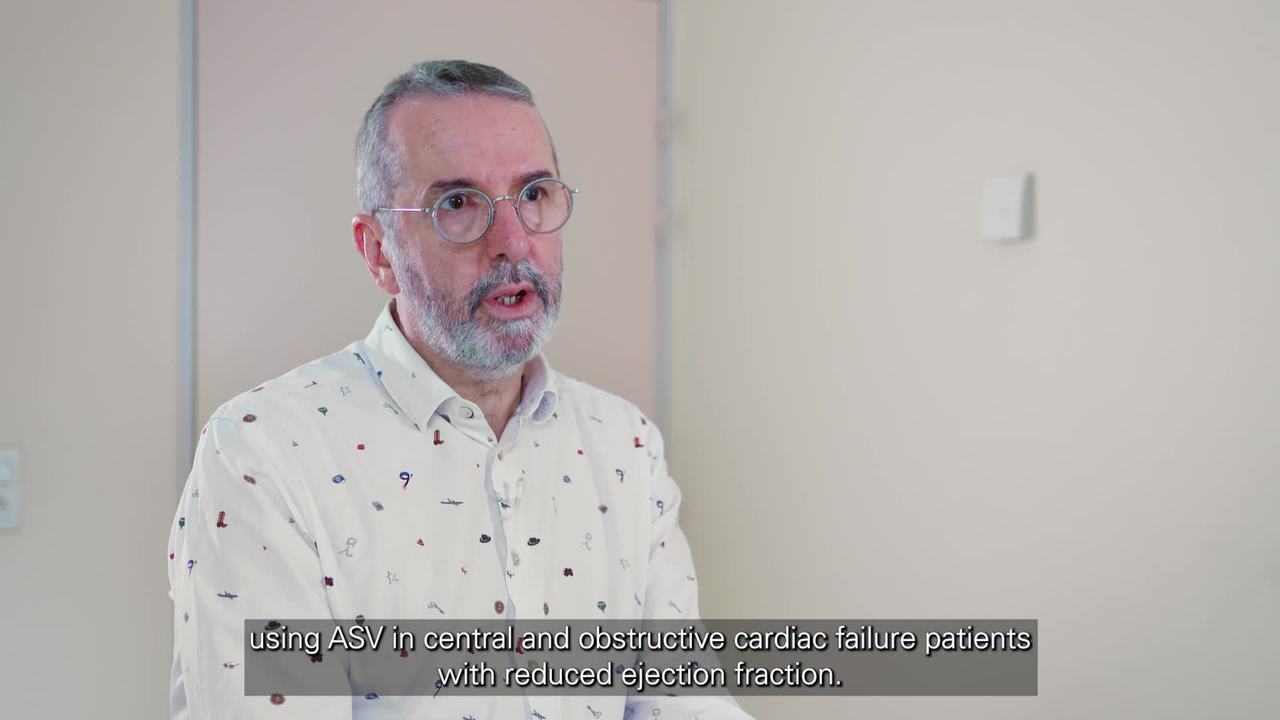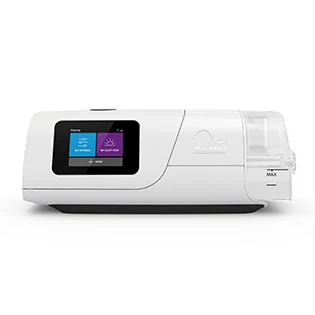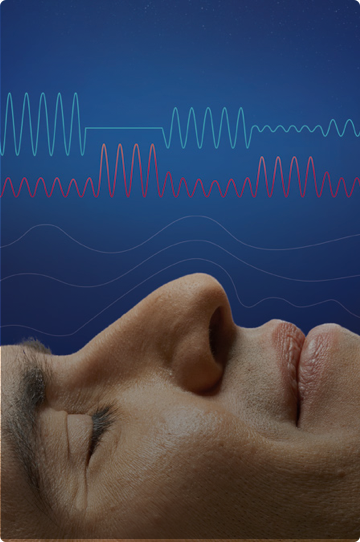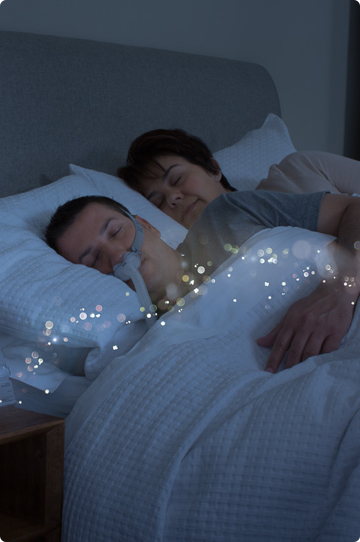Wie können Sie Ihre Patienten mit zentraler/komplexer Schlafapnoe behandeln?
Erfahren Sie, wie die von Resmed entwickelte adaptive Servoventilation (ASV)* eine an die Patientenbedürfnisse angepasste, komfortable und sichere Therapie ermöglicht.
* Die ASV-Therapie ist kontraindiziert bei Patient:innen mit symptomatischer chronischer Herzinsuffizienz (NYHA-Klasse 2–4) mit verringerter linksventrikulärer Ejektionsfraktion (LVEF ≤ 45 %) und moderater bis schwerer prädominant zentraler/komplexer Schlafapnoe.
Quellen:
- Pépin JL et al. Adherence to positive airway therapy after switching from CPAP to ASV: a big data analysis, J Clin Sleep Med, 2018; 14(1): 57–63.
- Cistulli PA, Armitstead J, Pépin JL, Woehrle H, Nunez CM, Benjafield A, Malhotra A. Short-term CPAP adherence in obstructive sleep apnoea: a big data analysis using real world data. Sleep Med, 11. Januar 2019. Pi:S1389-9457(18)30797-4.
- Carnevale et al. Effectiveness of Adaptive Servo-Ventilation in the treatment of hypocapnic central sleep apnoea of various etiologies. Sleep Medicine, Dezember 2011; 12(10):952–8.
- Allan et al. Efficacy of adaptive servo ventilation in treatment of complex and central sleep apnoea syndromes. Chest, 2007; 132:1839–46.
- Morgenthaler et al. Adaptive servoventilation versus noninvasive postive pressure ventilation for central, mixed and complex sleep apnoea sydromes. Sleep, 2007; 30(4):468–75.
- Brown et al. A retrospective case series of adaptive servoventilation for complex sleep apnoea. J Clin Sleep Med, 2011; 7(2):187–95.
- Randerath W et al. Definition, discrimination, diagnosis and treatment of central breathing disturbances during sleep ERJ Express. Veröffentlicht am 5. Dezember 2016 unter doi: 10.1183/13993003.00959-2016.


